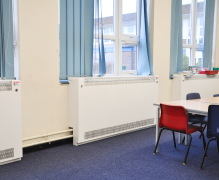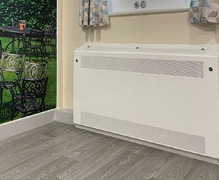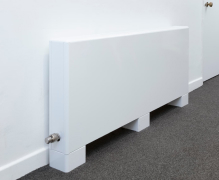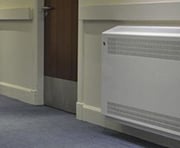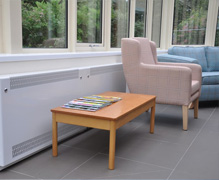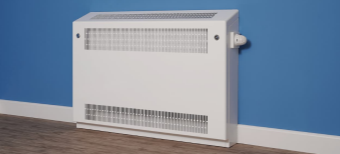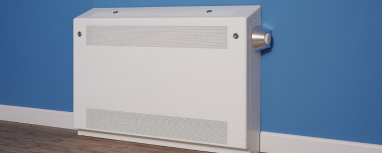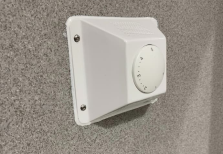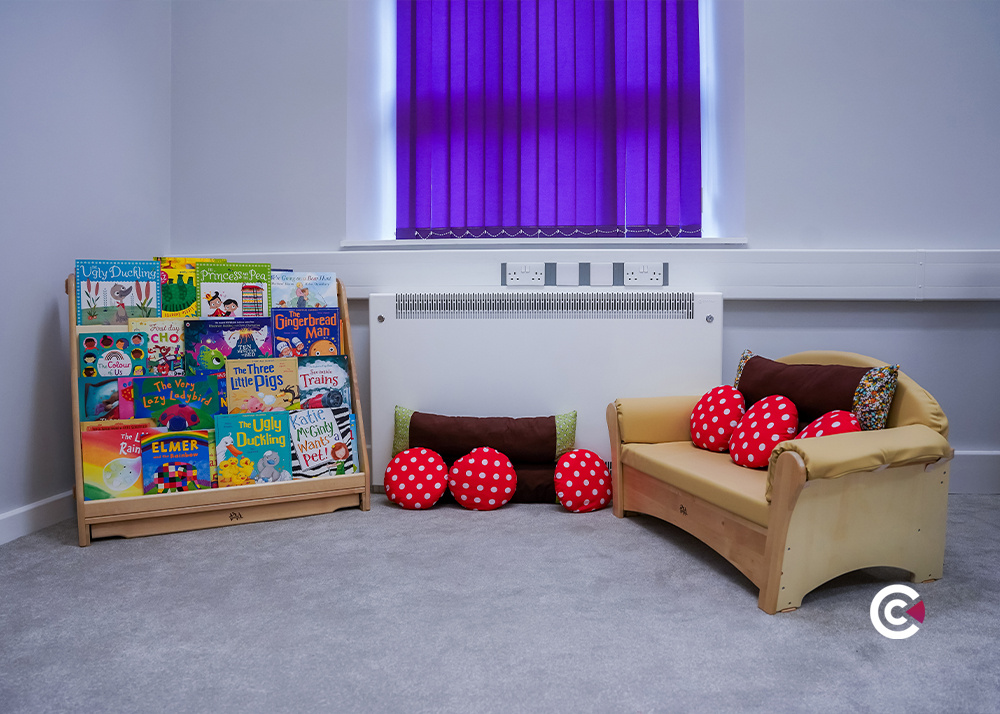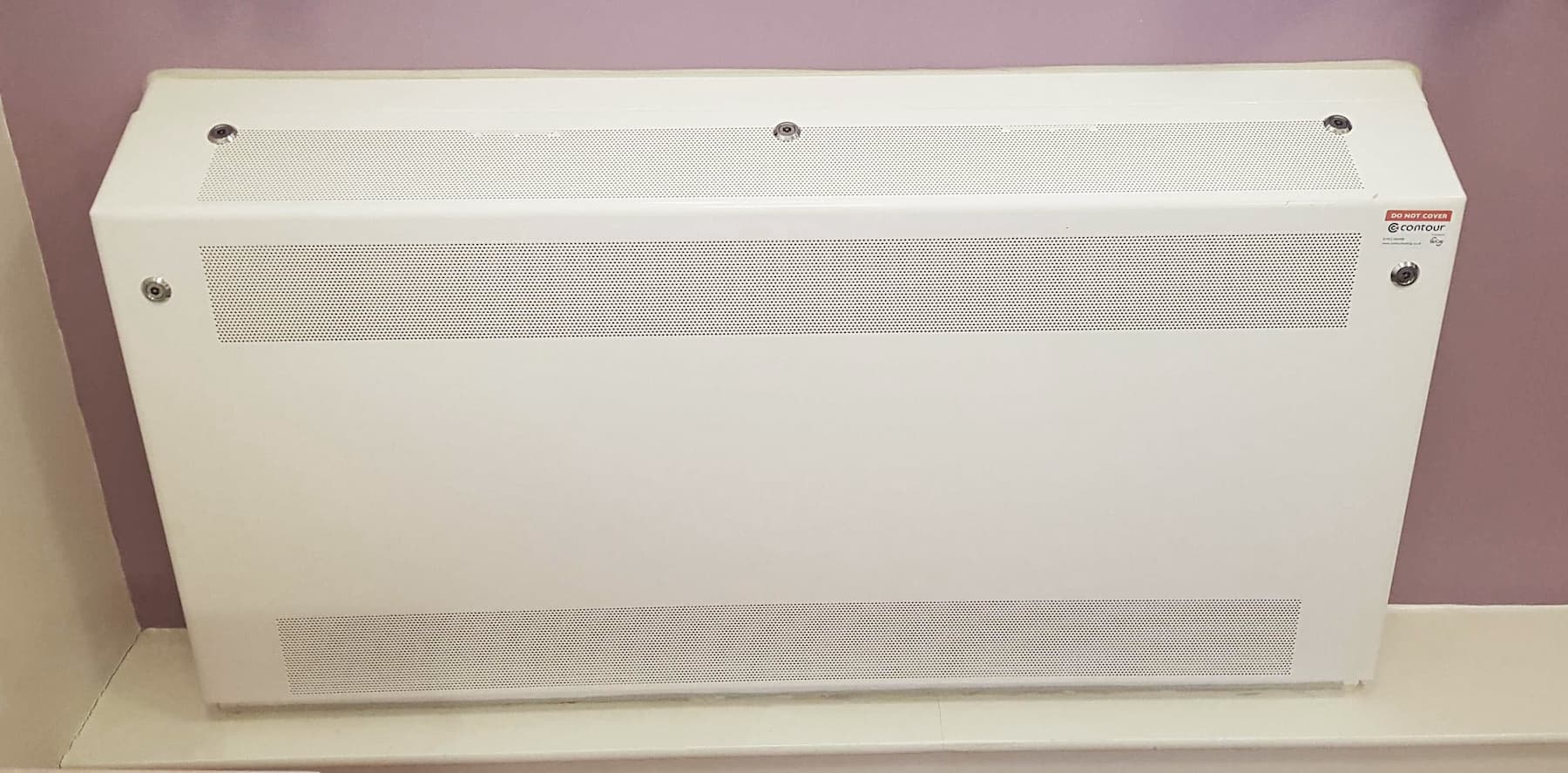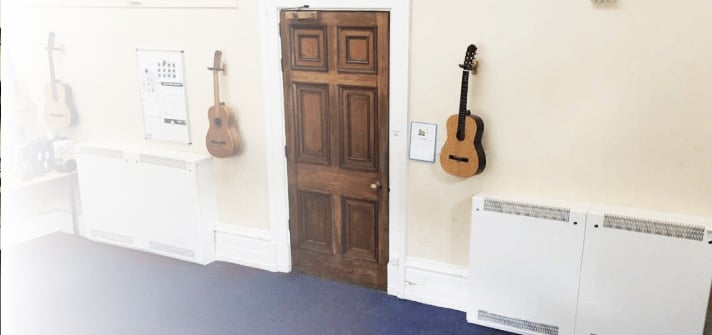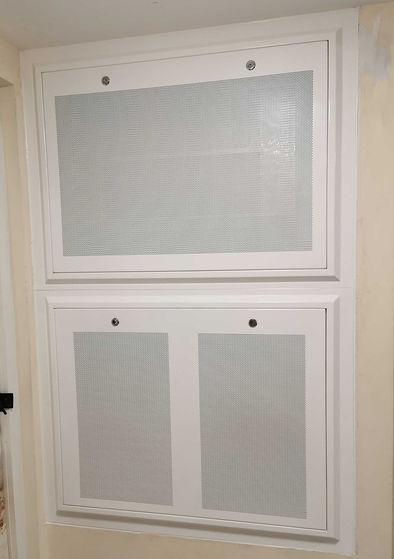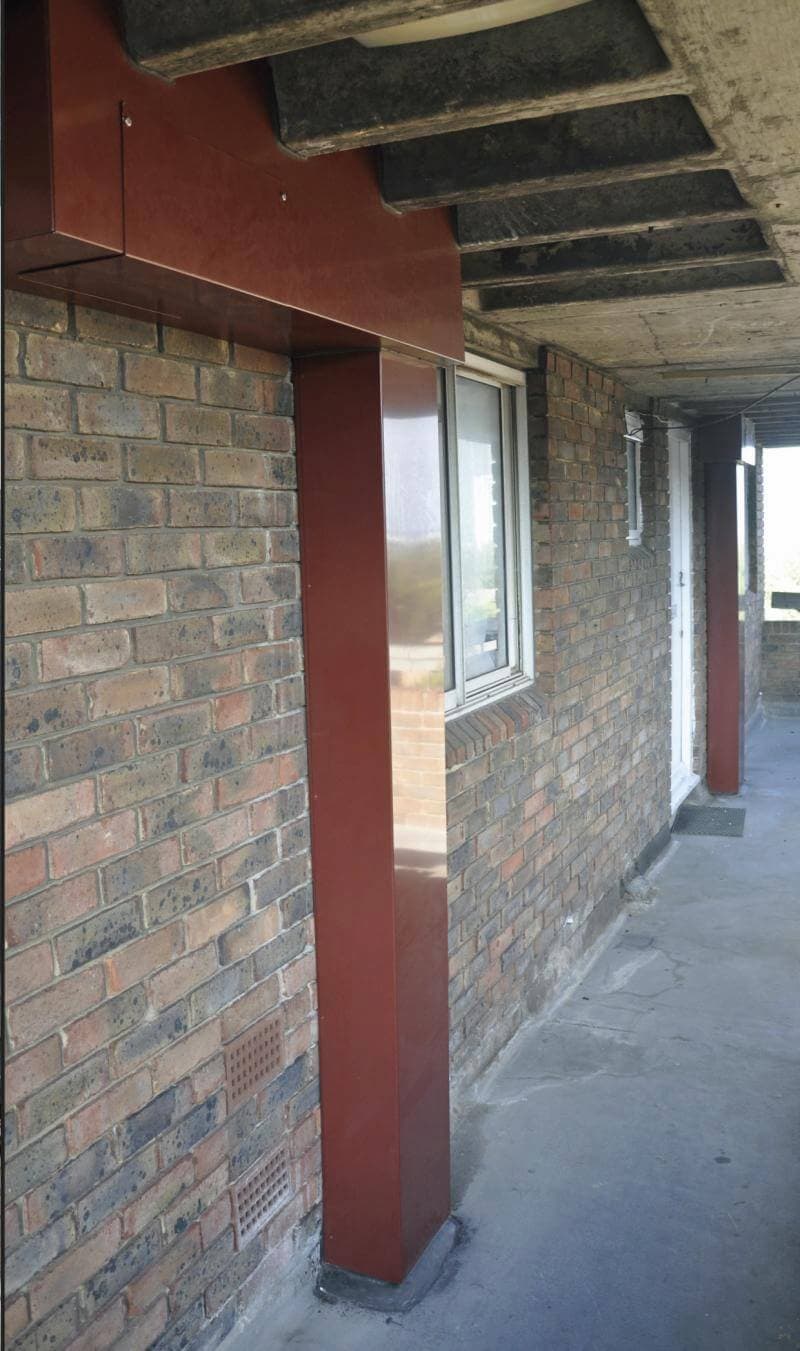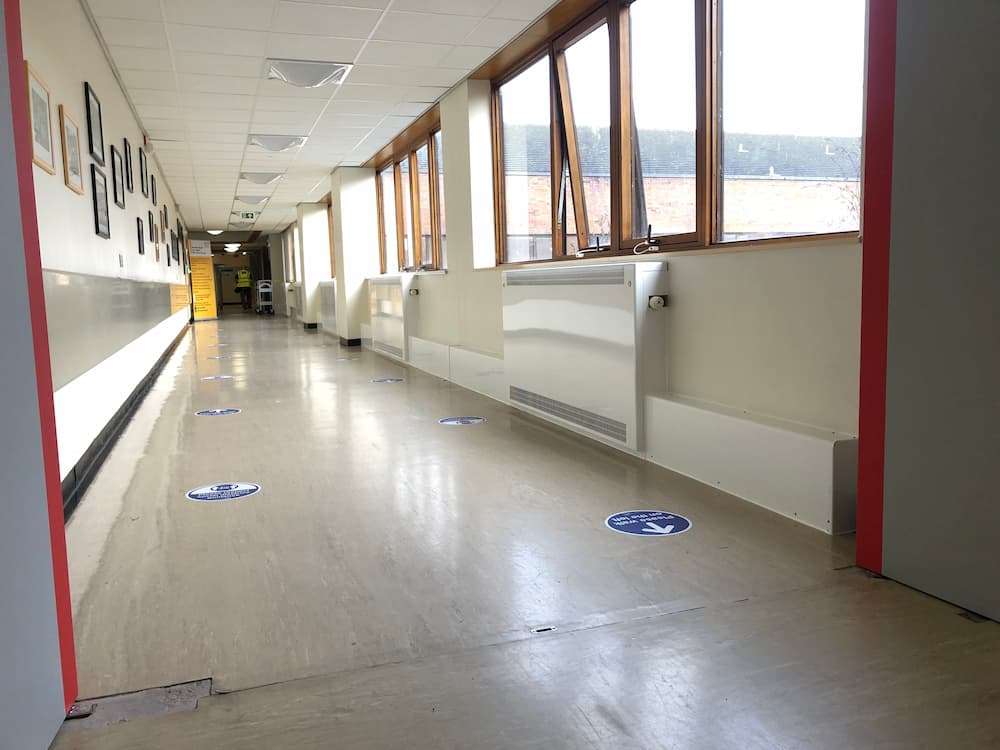In all healthcare and residential environments, safety is a driving factor in the types of resources you choose to specify. When it comes to radiators in care and nursing homes, there are certain factors worth considering, which we will explore throughout the topic.
Factors such as the location of the radiator, radiator surface temperature, ease of access for cleaning and product safety features all need consideration.
Safety and well-being for residents help contribute to a comfortable and happy living experience, and a poorly specified radiator may present a potential risk of injury, or worse.
Low Surface Temperature (LST) Radiators
Risk of burn is a key issue in environments that house vulnerable individuals. Back in 2010, alarming figures emerged, stating that 1,970 people were injured in a public building due to contact with a radiator or section of hot pipework.
As a result, the government recommends that you choose radiators that don’t exceed a temperature of 43 °C.
Despite this, we are still hearing stories from as recent as 2015, where an elderly care home resident died from serious burns caused by a standard radiator. In response to this devastating incident, the victim’s son stated:
“We hope that the lessons learned with regard to exposed pipe work and acceptable temperatures for hot surfaces in care homes will prevent other families having to experience what we have.”
Considering that standard panel radiators could reach up to 80 °C, care and nursing homes have a duty to specify appropriate radiators for their residents.
The Problems With Current Radiators
Based on our findings, standard radiators and guards have been proven to be a poor fit for care and nursing home. There are several reasons for this:
- Non access covers
- LSTs made from multiple pieces of metal that make it hard to take apart and assemble again after cleaning and maintaining.
- Weak materials such as 1.2mm steel that are easily damaged
- Covers made from MDF that absorb the heat due to their design and thermal properties.
What Are Your Options?
With a variety of radiator guards on the market, we recommend that you bear certain considerations in mind. Whilst radiator guards reduce the surface temperature, they do affect the heating efficiency.
Contour’s DeepClean LST radiator guards reduce heating efficiency by only 11%. So, depending on the environment, our guards might be an appropriate choice. We recommend that you be mindful of the reduction of heat efficiency before making your final decision. Radiator guards will have varying levels of efficiency reduction.
Low Surface Temperature (LST) radiators are a versatile and safe option, designed to prevent injury in the event of accidental contact. What’s more, our casing options can be used to conceal exposed valves and pipework, often visible in older buildings.
Other Safety Considerations For Your Radiators
Whilst radiator surface temperature is arguably the most important safety feature of our radiator range, Contour aims to go beyond the obvious risks, taking a more holistic viewpoint.
No Sharp Edges
We understand that elderly individuals are vulnerable to falls, and in the event of this happening, you’ll want to be assured that the fall is as risk-free as possible. This means assessing the number of sharp edges present on the outside casing of the radiator or cover.
Boasting bullnose corners and radius edges, any risk of additional injury from a fall is mitigated.
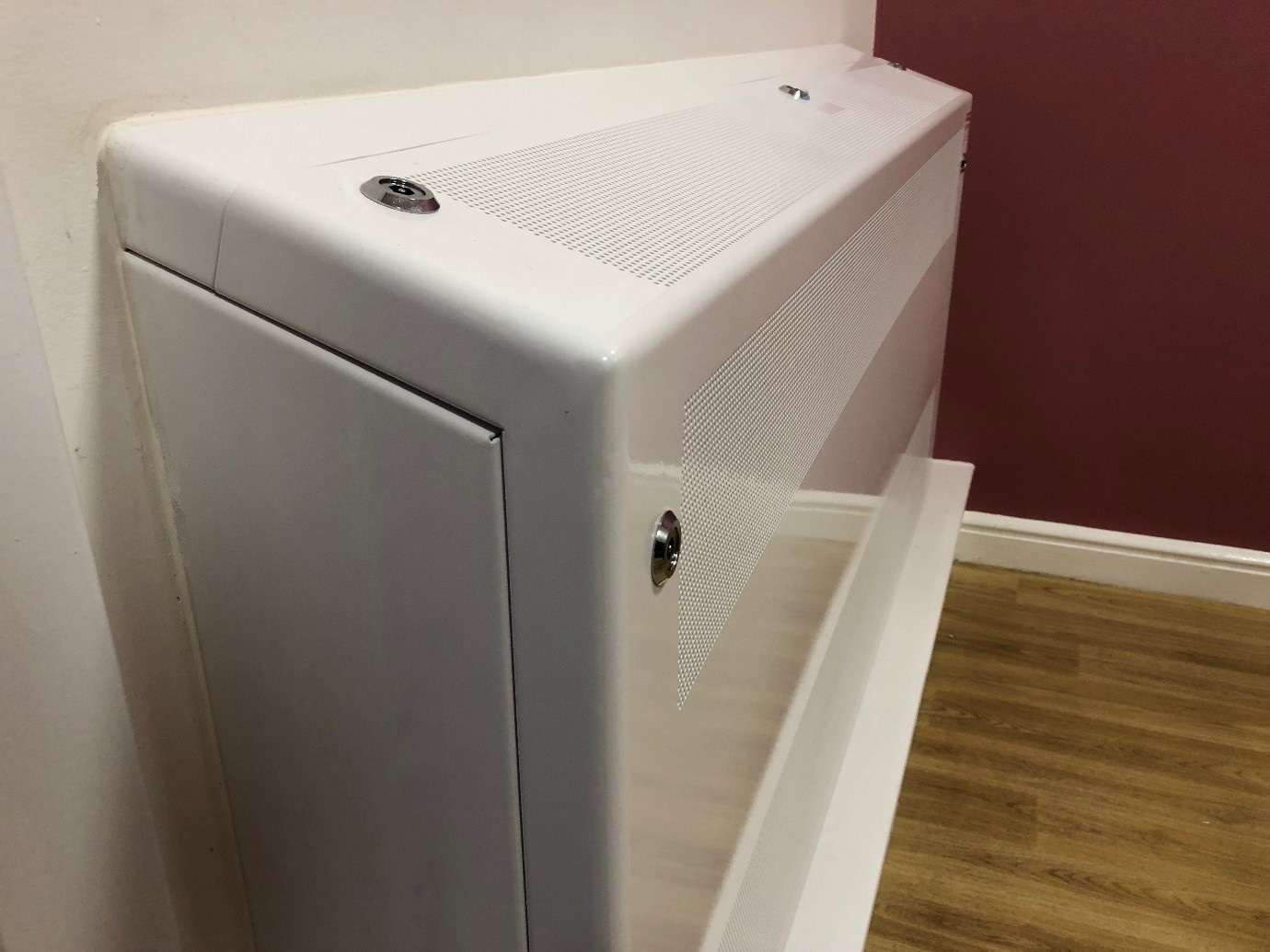
Easy Access For Cleaning
In environments where immune systems are compromised, hygiene and cleaning are key areas that require attention. Contour’s DeepClean LST radiators have been designed to make the cleaning process as efficient and effective as possible. For full instructions on how to clean an LST radiator, click here.
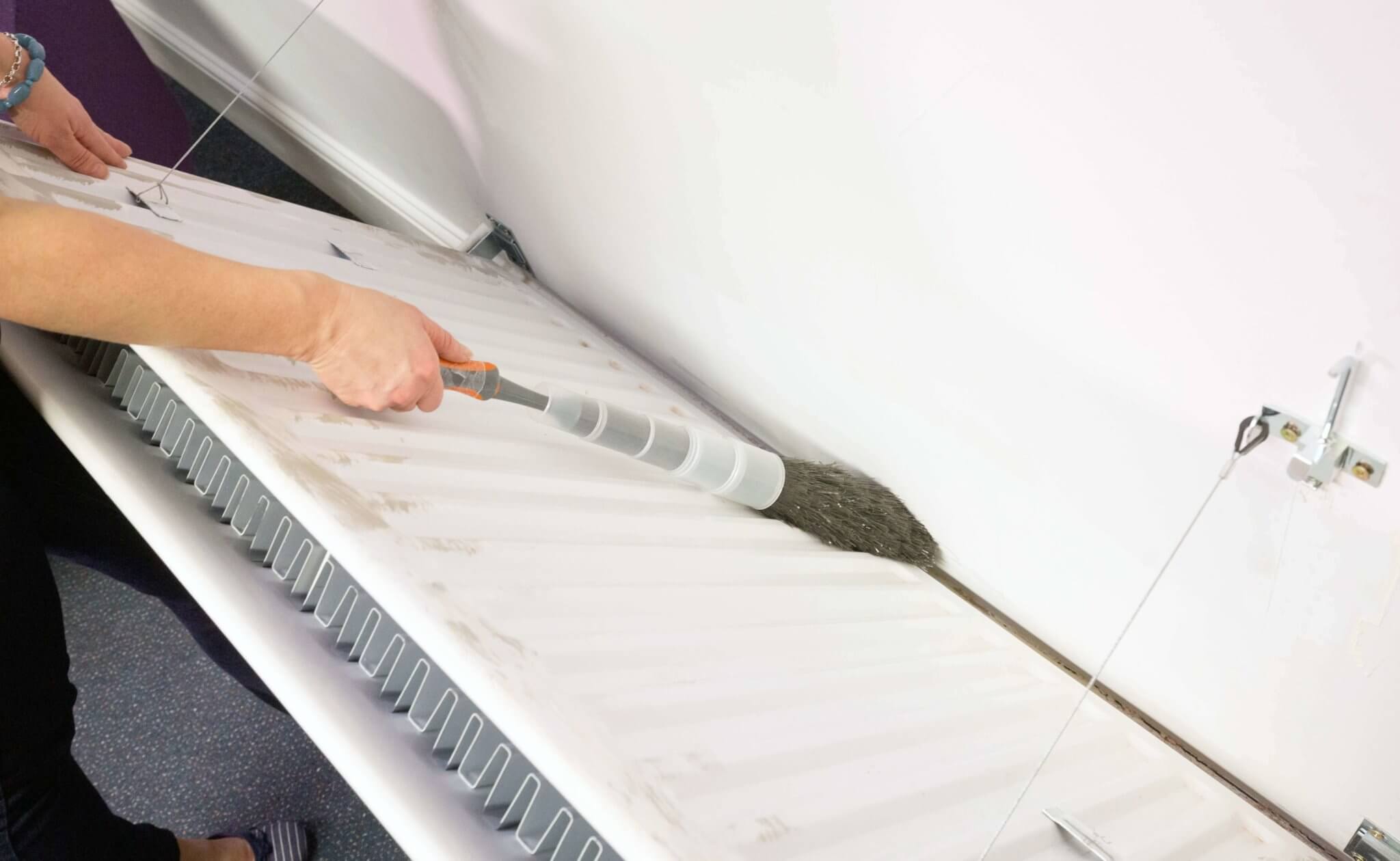
No Risk Of Harmful Bacteria
Again, with vulnerable residents, the risk of bacteria spreading could pose a severe health risk. As one of the only manufacturers in the UK to incorporate BioCote antimicrobial technology in the paintwork of every radiator and guard, Contour can confidently say that risk of bacteria spreading is greatly minimised. Read more about BioCote’s technology here.
Conclusion
We hope that this article has helped you to understand that our LST radiators and guards don’t just reduce the risk of burning; they are beneficial for numerous purposes.
If you’d like any more information on how we can improve the heating safety of your care and nursing home, talk to one of our experts today.
About Us
Contour produces a range of innovative, safe surface temperature systems for healthcare, education, mental health, commercial and secure sectors, working in close partnership and collaborating with architects, M&E engineers, NHS Trusts, local authorities, design consultants and contractors to deliver outstanding safe heating solutions.
Contour is the exclusive partner of BioCote® anti-microbial technology for LST and anti-ligature radiators. BioCote® additives reduce bacteria by up to 99.9%. Contour combines an extensive range of colour-paints is with BioCote® for a durable, high-quality finish.
Contour’s heating solutions offer secure, single-person quick access to radiator guard interiors for regular deep cleaning and maintenance. Each year, Contour save the NHS millions of pounds in cleaning costs, therefore delivering.
-1.png)


